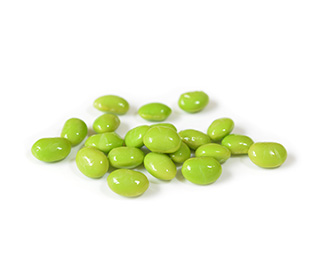Effects of Edamame

Edamame, or immature soybean, is one of the most popular foods in Japanese cuisine. It is most commonly served as a snack,1 but it can also be sweetened and turned into ice cream.2 Interestingly, some people even eat it as a "healthier" alternative to popcorn.3
While edamame has been widely praised for the bulk of vitamins and nutrients it supposedly possesses, it can potentially expose you to various health risks when eaten in excess, or when eaten raw or undercooked. For more information about edamame and its possible effects, continue reading this article.
What Is Edamame?
The name "edamame" comes from its Japanese name, which directly translates to "beans on branches." Edamame is harvested at peak ripeness before the pods start to harden. Other optimal harvest indicators include 85% pod capacity while having immature, but fully developed seeds.4
In cultivating edamame, fields are divided between mature soybean production and edamame production. About 95%of the edamame found in the U.S. is imported from China. However, the production in the U.S. is slowly picking up. Edamame consumption in the U.S. is also on the rise, with an estimated 12% to 15% rise annually.5
The increase in demand may be credited to the widespread advertisement of edamame as a superfood, but don't be quick to believe the hype, as there are potentially detrimental effects linked to this food.
Is Edamame Really Good for You?
Edamame contains high amounts of harmful toxins, which are introduced to your digestive system when eaten. Unfortunately, the toxic effects of these components may not be easily and immediately observed in your body; however, various disorders and conditions can develop over time.
One of the most pernicious toxins found in edamame is lectins. These are proteins that function as a defense mechanism for the plant. Some of these have been observed to be pro-inflammatory, immunotoxic, neurotoxic and cytotoxic.6,7 Lectins are commonly found in grains and beans, with soybeans and wheat being the worst sources. Since edamame is an immature soybean, there's no question that it contains the same alarming levels of this protein as mature soybeans.
In addition to the lectin content, edamame is filled with phytoestrogens. These are chemicals that are functionally similar to estrogen, and may negatively impact male fertility and increase breast cancer risk in women.8,9
How Does Edamame Affect Your Health?
Edamame contains protein, vitamins and minerals,10 but unfortunately, these are easily overshadowed by its negative effects on your health. The only form of soy ideal for human consumption is fermented soy, which is usually available as tempeh, miso and natto, because fermentation deactivates toxins.
However, the majority of Americans don't consume fermented soy. If they do incorporate soy into their diet, they typically consume unfermented varieties like tofu, soy milk and edamame. Some notable chemicals found in soy that can cause health problems include:
- Hemagglutinins — These can clump your red blood cells together, which inhibits oxygen uptake and growth.11
- Omega-6 fat — Too much omega-6 consumption in soy may cause a rise in chronic inflammation.12
- Goitrogens — These substances block thyroid hormone synthesis, as well as hinder iodine metabolism.13
In addition, the majority of soybeans available in markets across the country are genetically modified. The use of the weed killer Roundup in the conventional production of soybeans not only exposes you to the ingestion of harmful chemicals, but also heightens your risk of infertility.14
This means that if you have high amounts of unfermented soy in your diet, you're not only getting harmful substances from the soybeans themselves, but you're also ingesting high amounts of glyphosate because of the unnatural way these soybeans are produced.
If you want to enjoy the benefits of soybeans without the fear of suffering the consequences, make sure that you only consume fermented soybeans that are certified organic.
Frequently Asked Questions (FAQs) About Edamame
Q: Is edamame a vegetable?
A: Yes, since it's the immature version of soybeans, which are considered a vegetable.15
Q: Is edamame gluten-free?
A: Yes, edamame is naturally gluten-free.16 However, it can fall victim to cross-contamination because it's usually prepared with numerous ingredients that contain gluten.
Q: Is edamame paleo?
A: Like other legumes, edamame is not paleo. This is probably because soy and its many variants are a huge source of antitoxins, lectins and phytates, which all contribute to body malfunction.17
Q: Is edamame soy?
A: Yes. Edamame pods are technically immature soybeans. The only difference between these two food products is the time period in which they are harvested.18